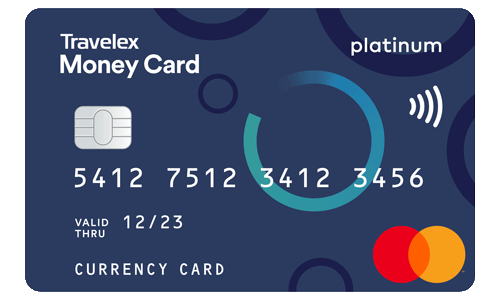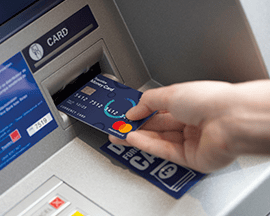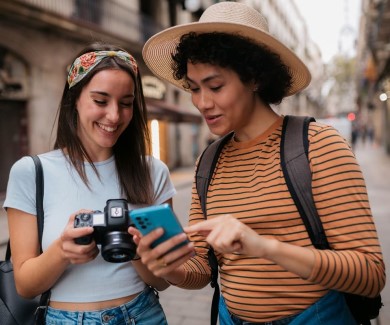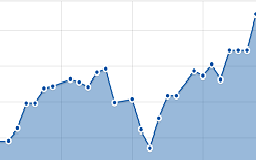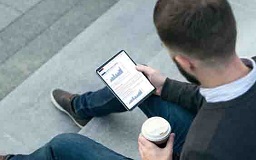UK Travel Money Guide
Planning a trip to the land of literature, sports, and the Royals? With both advanced urban cities and a wealth of history, the UK strikes a perfect balance between modern influence and tradition. As a result, travellers visiting the UK need to carry GBP in cash and cad, for ease of access purposes.
In this guide, we’ve compiled the basics of using cash and travel cards when in the UK, typical travel costs around the region, as well as good-to-know money tips. Keep reading to learn more about the British currency.
- Currency: British Pound Sterling
- Currency code: GBP
- Central Bank: Bank of England
- Currency symbol: £ (pound)
- Nickname: Quid
- Currency sub unit: p (pence, penny)
- Bank notes: £5, £10, £20 and £50
- Coins: £2, £1, 50p, 20p, 10p, 5p, 2p, 1p
The official currency used in the UK is called the British Pound Sterling, also broadly known as the Great British Pound or quid. You may see it abbreviated as GBP, £, or with pennies (p).
The British pound is the world’s oldest surviving independent currency and originated from continental Europe during Roman times. Its name is derived from the Latin word “poundus”, meaning “weight”. GBP is currently the fourth most traded currency in the world.
Denominations of Pound Sterling
The GBP is made up of a combination of notes and coins, which are all frequently used in most types of cash purchases. Banknotes come in larger denominations, while coins and pennies are used to represent smaller values (one penny is one-hundredth of a pound).
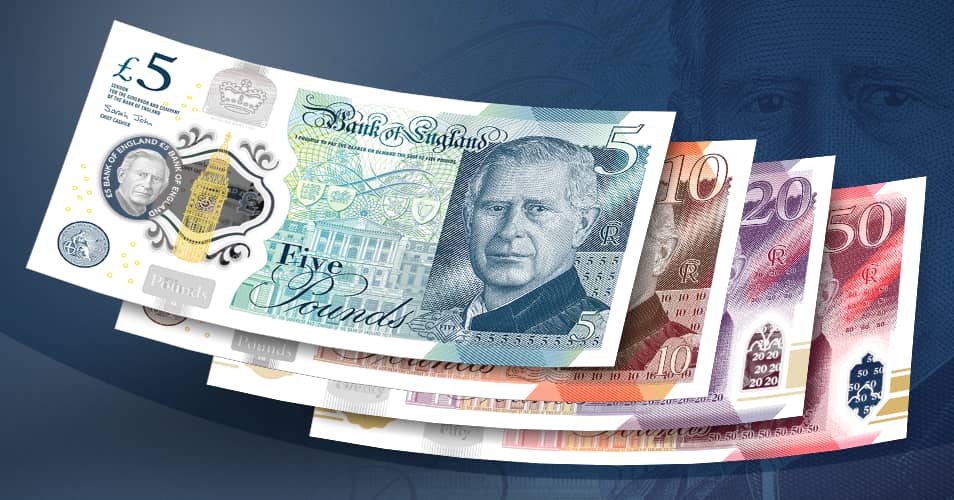
UK Banknotes
There are only four banknotes used in UK currency. UK banknote denominations include:
 £ 5 - these are blue
£ 5 - these are blue
 £ 10 - these are orange
£ 10 - these are orange
 £ 20 - these are purple
£ 20 - these are purple
 £ 50 - these are red
£ 50 - these are red
The UK banknotes are known to feature the ruling monarch of the period. When a ruling monarch passes, old banknotes are taken out of circulation, and new notes with the new monarch are printed. Expect the new banknotes with King Charles III to enter circulation by mid-2024
UK Coins
It’s also useful to know what coins to use for smaller purchases or loose change when you travel the UK. There are currently eight British coins in circulation. They are separated into denominations of 1, and 2 pounds, as well as 1, 2, 5, 10, 20, and 50 pence.
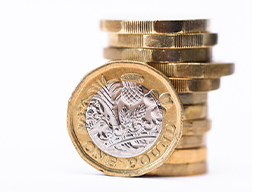
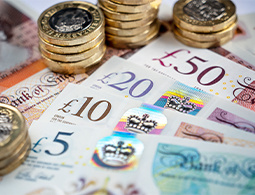
While the UK is not exactly a cash-based society, cash is still the primary payment method, especially in rural towns or villages and the countryside. You can use credit, debit and travel cards to make purchases in major cities such as London, Manchester, and Birmingham.
Major cities also have many accessible international ATMs, where you can withdraw cash from your travel card whenever necessary.
GBP Coins and Notes
GBP cash in coins and notes can be useful to have on hand when travelling around the UK, especially in more rural areas such as Lincolnshire, Scotland and Northern Ireland. Cash is often used in local establishments such as supermarkets, groceries, and small cafes.
You may enjoy smoother travels around the UK if you pocket some extra cash to use for smaller purchases rather than your usual bank card. However, if you do find yourself visiting UK’s major cities, having a travel card to store GBP may be handy.
Best Travel Cards for the UK
Travel cards are often used as an alternative to regular credit and debit cards as they are able to store foreign currencies and be used overseas with minimal international transaction fees.
The Travelex UK travel card is an award-winning multi-currency card known for its accessibility and reliability during one’s travels. It features unlimited free ATM withdrawals, compatibility with the Travelex Money App, and highly competitive exchange rates. You can use it to store GBP while on your travels and make purchases wherever Mastercard is accepted.
You can also keep track of the GBP to AUD currency exchange rate with the Travelex currency converter or travel rate tracker. When you come across a rate favourable for you, you can fix it and exchange currency at your preferred rate for the remaining duration of your travels.
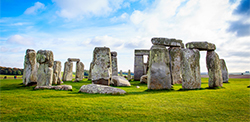
The cost of a trip to the UK depends on the places you’re planning on visiting, your food budget, and your preferred transport methods during your travels. Knowing some basic average costs for food, transport and experiences in the UK can help you better budget for your trip.
How much does it cost to travel in the UK?
Below we’ve compiled a list of the most important costs to keep in mind when travelling to the UK.
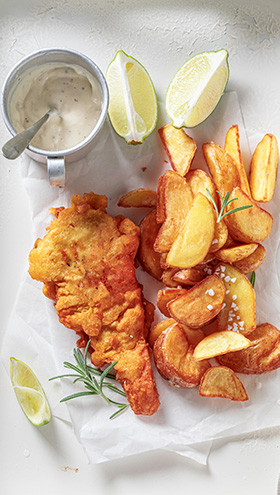
UK food prices
The average meal in the UK costs around £15.00, with more mid-range restaurant meals averaging up to £55.00. That said, food prices can also vary depending on your location, the type of food you’re eating, and how many servings you purchase.
| Foods in the UK | Average Cost in GBP |
|---|---|
| Fish and chips | £ 7.00 |
| Bangers and mash | £ 5.00 - 6.50 |
| Full English breakfast | £ 5.00 - 20.00 |
| Shepherd’s pie | £ 11.75 |
| Beer | £ 4.00 |
| Coffee | £ 2.95 |
UK transport costs
From the UK train line to taxis to private car hires, there are many ways you can travel in the UK. Below are rough estimates of the costs of these common transport methods.
| Transport in the UK | Average Cost in GBP |
|---|---|
| One-way local transport ticket | £ 2.50 |
| Monthly local transport pass | £ 65.00 |
| Taxi (per 1km) | £ 1.24 |
| Car hire (per day) | £ 85.00 |
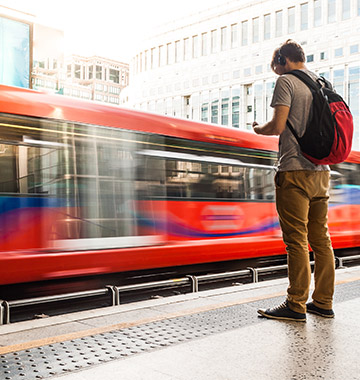
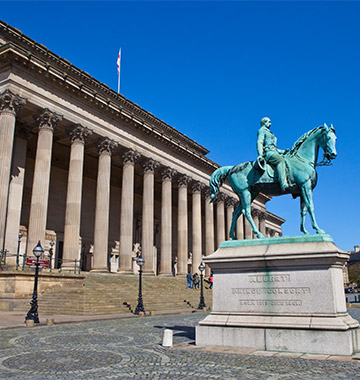
Activity prices in the UK
Although a lot of sightseeing around the UK is free, there are a few must-do tourist activities in the UK that cost money. Below is a compilation of the cost range of these activities.
| Entertainment Activities in the UK | Average Cost in GBP |
|---|---|
| Museum admission | £ 10.00 - £ 20.00 |
| Theme Park admission | £ 30.00 - 60.00 |
| Sports game ticket | £ 30.00+ |
| Theatre ticket | £ 20.00 - 70.00 |
UK visa costs
Australians can apply for an eVisa or Electronic Travel Authorization (ETA) to visit the UK for the short term. Both eVisas and ETAs allow Australian tourists to stay up to three months at a time and are free, although an ETA may have an application service charge of AUD 20.
Otherwise, for visits of more than six months, travellers may need to apply for a Standard Visitor visa (for UK, Isle of Man, Jersey and Guernsey) which costs AUD 181.
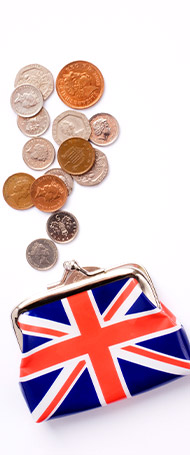
Having some loose change in your pocket is always helpful when travelling around the UK. This is because small establishments in rural areas may not have the technology to accept purchases using cards. All major cities in the UK have international ATMs, so you can conveniently withdraw cash whenever necessary. Major establishments in large UK cities may prefer contactless payments over cash.
There are also a few slang terms that locals use when referring to British currency. For example, a “tenner” is a £10 note, and a “quid” is a pound. The slang term for five pounds is a “fiver”, and the slang term for fifty pounds is a “monkey”. Knowing these terms can be helpful so that you don't appear to be confused when dealing with locals.
Bargaining or haggling is also not commonly done in the UK. Locals may consider it rude, and the prices are usually fixed in the majority of places. Therefore, it's best to pay the quoted price for goods and services unless there is a special offer or sale.
The UK also uses a value-added tax (VAT) system, which means that taxes are typically included in the displayed prices of goods and services. The current standard VAT rate in the UK is 20%, although there are also reduced rates of 5% and 0% for certain goods and services.
Yes, it is always good to be prepared with a bit of money before travelling to a foreign country. However, before exchanging currency (Australian dollars to British pounds), it’s best to keep track of rates with a currency converter and figure out exactly how much you’ll need.
How much money you should bring to the UK varies depending on what you're looking to do and where you plan to stay. In general, it is recommended that you bring enough money to cover accommodation, food, and a few entertainment experiences.
The two best ways to pay for travel in the UK are with cash or a travel card. Both are viable and have their pros and cons.
The UK does not have a maximum limit on the amount of currency you can carry when you enter the country. However, if your total amount is more than 10,000 EUR (or equivalent in another currency), then you must declare it to customs upon arrival.
Travel to the UK FAQ
Yes, it is always good to be prepared with a bit of money before travelling to a foreign country. However, before exchanging currency (Australian dollars to British pounds), it’s best to keep track of rates with a currency converter and figure out exactly how much you’ll need.
How much money you should bring to the UK varies depending on what you're looking to do and where you plan to stay. In general, it is recommended that you bring enough money to cover accommodation, food, and a few entertainment experiences.
The two best ways to pay for travel in the UK are with cash or a travel card. Both are viable and have their pros and cons.
The UK does not have a maximum limit on the amount of currency you can carry when you enter the country. However, if your total amount is more than 10,000 EUR (or equivalent in another currency), then you must declare it to customs upon arrival.
